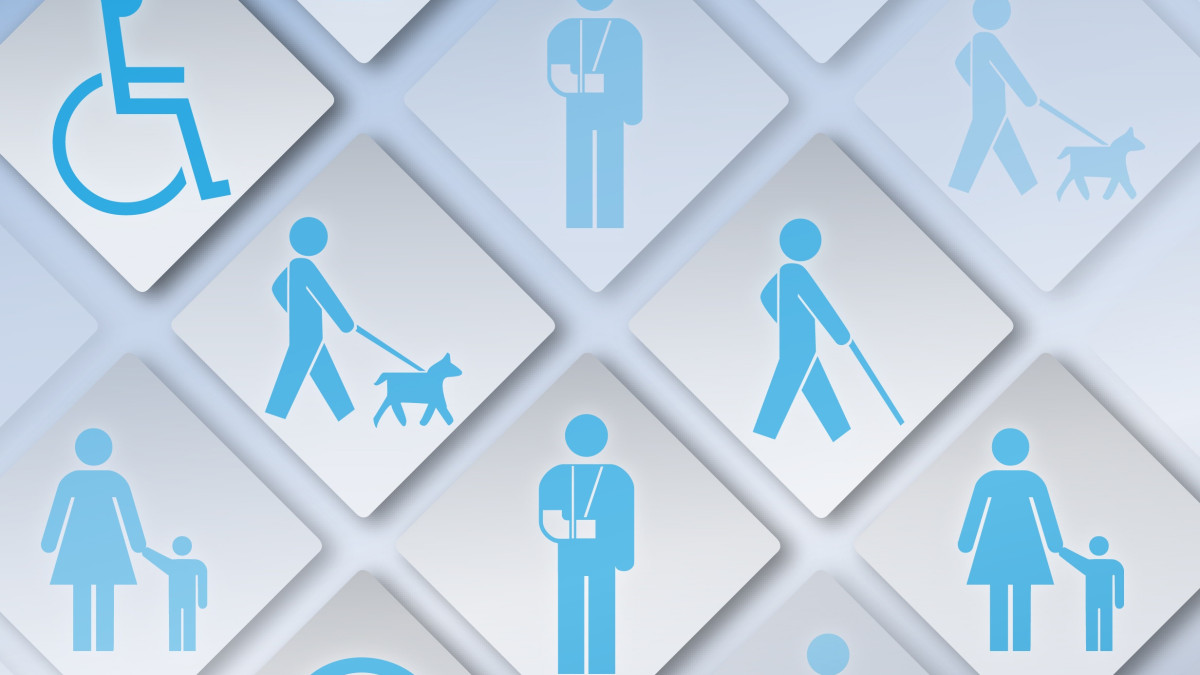
Blog: Is accessibility legislation progress or a new edition of the cucumber directive?
Although the law entered into force more than a year ago, the law will become relevant for the majority of the public sector on September 23.9.2020, XNUMX, i.e. a week from now, when websites that are more than two years old must comply with accessibility requirements. This is also the case in the city of Imatra.
Accessibility on websites is roughly the same as accessibility in physical spaces. The requirements concern, among other things, the use of colors in material published online, the usability of websites with screen readers and keyboards, the ease of reading texts, and so on.
Accessible online services benefit people with hearing and vision impairments, people with disabilities in various ways, people with reading and learning difficulties, but also ordinary trampers. All of us are sometimes under a lot of stress or the sun is shining badly on the cell phone screen just when we should be finding out about the bus schedule.
Efforts must be made for accessibility
The content of online services is produced all the time, and even in the city of Imatra, by dozens of people. When you include social media channels, which also have to comply with accessibility requirements, a lot of content is created.
The need for changes in working methods caused by accessibility requirements surprised me and certainly many others as well. Pictures and diagrams must be explained verbally, heading styles must be used in Word documents that end up online, Power Points must have a significant reading order, documents must be marked with a title in addition to the file name, videos must be subtitled and many other small things that were not very routine before.
To top it all, the program M-Files used in the administration of the city of Imatra does not produce fully accessible documents. However, decision-making generates more decision documents with continuous input, even though our online service is already bulging with PDFs that pop up in the accessibility check. It will still take a while to fix these, if at all.
Now, hundreds of old documents that have been created in the past two years should be corrected at the same time, and practices should be built so that they will not be created again. The PDF culture born on the basis of A4 paper should now be changed to the digital age.
In front of this shocking new learning project, the legend of the EU cucumber directive comes to mind. The one whose compliance affects mostly conscientious Finns. The accessibility law is based on the EU accessibility directive.
One advertising agency entrepreneur even blurted out that from now on nothing but black and white will be published. In recent years, municipalities have invested heavily in visual presentation, videos and standing out from the rest. There have been more and more opportunities for this as technology has developed.
A threat or a possibility?
Does accessibility legislation put a damper on visually progressive public administration communication and municipal marketing?
Content can no longer be created as carelessly as before. It cannot be denied. The directive may hit the canvas momentarily, but I believe that taking accessibility into account can be learned like any other new thing. Compliance with accessibility is nothing more than compliance with the rules in traffic.
If the traffic rules are useful in many ways, then so are accessible web contents. Each of us surely prefers to read an understandable text clearly structured with headings rather than official language full of abbreviations, which perhaps appears in too dim a font and in one place. The reader is also pleased when the content opens up on the screen and does not remain a secret of the PDF author.
As a website administrator, we are certainly interested in our visibility. You see, King Google likes the same pages as the visually impaired, i.e. accessible pages.
Heikki Laine
Communication specialist
Accessibility statement
The accessibility report, which will become mandatory on September 23.9.2020, 23, will appear on the Imatra city's online service, which will describe the site's level of accessibility and the schedule for correcting accessibility deficiencies. Imatra.fi will be renewed a little before September 2021 and the next time in XNUMX, when the site will be completely made accessible.
Video subtitling
According to accessibility legislation, videos must be subtitled. Live broadcasts do not need to be subtitled, but they cannot be shown without subtitles for more than two weeks after streaming.
As a result, live broadcasts sent after September 23.9.2020, XNUMX will be removed from the network two weeks after they were sent. A recording of, for example, a city council meeting can be obtained on request to view later.
Contacts: communication imatra.fi (communication[at]imatra[dot]fi)
imatra.fi (communication[at]imatra[dot]fi)
